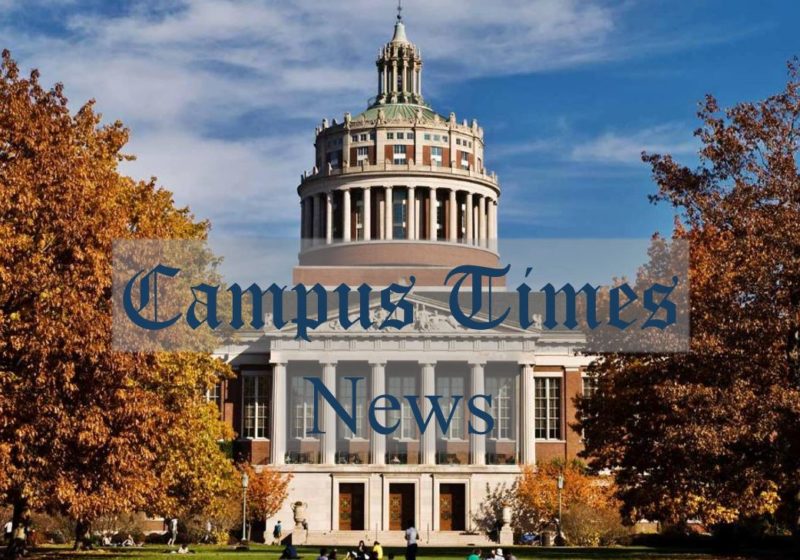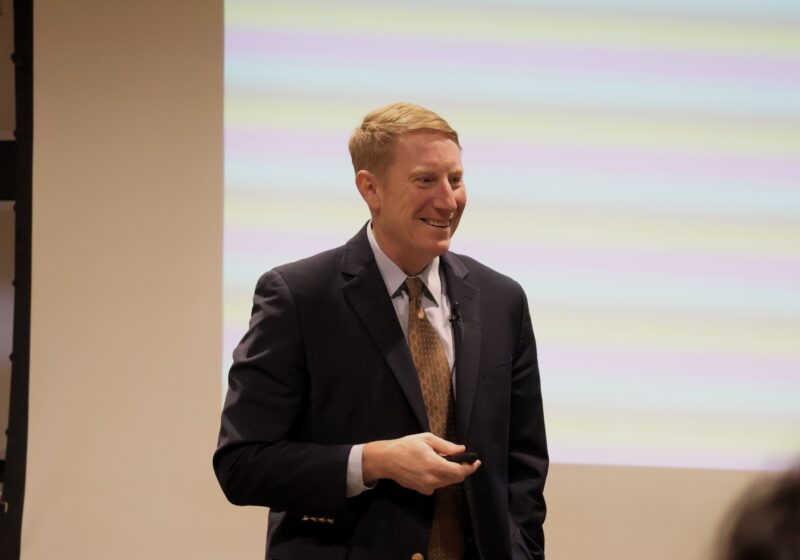Since December, a series of large-scale earthquakes has been hitting southwest Puerto Rico, decimating its infrastructure and leaving much of its populace without a home.
“We’re all very nervous,” first-year and executive secretary of the Puerto Rican Student Organization (PRSO) Luiza Gruel Budet said. “During the break, in the [PRSO group] chat we were talking, like ‘Is everybody okay?’ when we felt the earthquakes.”
Puerto Rico has been experiencing quakes and tremors since Dec. 28, 2019, with the first earthquake coming after a week of tremors and shutting down the power grid for three days. Gruel Budet said PRSO is looking to organize an event to gather resources for earthquake relief.
“We’re talking about 3.5 million American citizens that in a matter of minutes were left in the dark,” junior and PRSO president Brian Basu Perez said. Puerto Rico’s public utility, PREPA, tweeted on January 13 that power has been restored to 99 percent of the homes and businesses it serves. Many people living in Puerto Rico still have no homes. The Associated Press estimates that five thousand people have been left homeless by the earthquakes.
The most recent earthquake occurred Saturday, the latest in a long line of daily earthquakes that Basu Perez and Gruel Budet say have brought to the surface political tensions and people’s distrust of the government. For the second time in two years Puerto Ricans are protesting against the sitting governor. In 2019, people protested for former governor Ricardo Rosselló to resign after chat messages in which he disparaged political opponents, journalists, women, and LGBTQ+ people.
Now Puerto Ricans are protesting Governor Wanda Vázquez, Rosselló’s replacement, after the discovery of a warehouse full of emergency aid unused since Hurricane Maria. She has claimed that she and most of her government were unaware of this aid, and has since fired three members of her government, including the director of the Emergency Management Agency.
“It’s really frustrating to know that we protested this corrupt government in summer, and to see it happening again,” Gruel Budet said. “And it’s worse when the government claims they don’t know anything about it, so it’s frustrating because you don’t know who to trust or what to believe.”
Basu Perez said the US government has placed too many regulations on federal aid coming into Puerto Rico, which have prevented the use of most of the funds dedicated to earthquake relief. “That’s why it’s taken so long for even a little bit of the money to actually be able to be spent,” he said.
Basu Perez added that the relationship between Puerto Rico and the federal government has been strained by President Donald Trump’s administration, which has delayed sending aid to Puerto Rico. He added that Trump’s perception of Puerto Rican government officials creates a lack of trust between the Puerto Rican state government and the federal government.
“There is the sense that, for some reason, instead of sending the good money of the federal government to help the farmers in the midwest or whatever, you’re sending it over to Puerto Rico, and somehow that’s bad for some reason […] that’s at least how the president views it,” Basu Perez said.
However, Basu Perez said that Puerto Ricans have more political power than Trump estimates.
“Given, we do not vote for the president,” he said, “we vote in the primaries, but still, we are citizens. We’re not nationals, like the people in Guam. We’re citizens. So if we move to a state such as Florida or New York, we automatically are able to vote and acquire full rights as citizens. So I think that’s also a problem. The federal government doesn’t feel like it owes a debt to Puerto Rico just because they don’t participate in federal elections.”
Basu Perez referred to the warehouse of unused aid as an example of governmental inaction that has led Puerto Ricans to take matters into their own hands. After the warehouse was discovered, he said, people began taking the supplies within for themselves. He said state government officials responded by saying that people should take the supplies because the supplies are for them.
“He [the director of the Emergency Management Agency] didn’t really get the message, he didn’t realize that people were taking the supplies because [he was] so incompetent,” Basu Perez said.
“People really need politicians and leaders and bureaucrats to step up and show that instead of adding to the noise, they’ll contribute,” he later added, “and they’ll leave politics aside, because there is a national emergency.”



